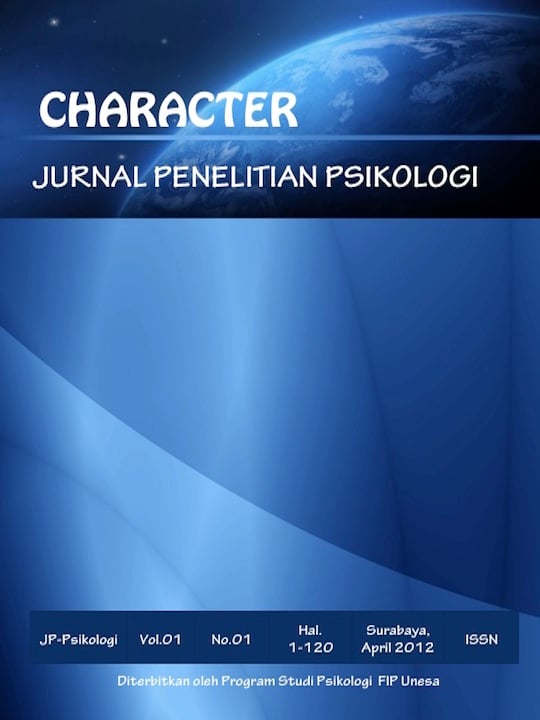HUBUNGAN ANTARA KONTROL DIRI DAN DUKUNGAN SOSIAL DENGAN MOTIVASI BELAJAR PADA MAHASISWA PSIKOLOGI UNIVERSITAS NEGERI SURABAYA
DOI:
https://doi.org/10.26740/cjpp.v8i6.41517Abstract
Abstrak
Motivasi belajar menjadi pendorong individu dalam mencapai tujuan pembelajaran. Tercapainya tujuan pembelajaran di situasi pandemi ini, memaksa mahasiswa harus memiliki motivasi belajar tinggi. Perubahan proses pembelajaran dari luring menjadi daring, membuat mahasiswa membutuhkan penyesuaian dari diri individu dan dukungan dari orang sekitar agar tetap menunjang peningkatan motivasi belajar. Penelitian ini bertujuan untuk mengetahui hubungan antara kontrol diri dan dukungan sosial dengan motivasi belajar pada mahasiswa saat pembelajaran daring. Penelitian ini dilakukan di Universitas Negeri Surabaya dengan melibatkan seluruh mahasiswa Jurusan Psikologi, Fakultas Ilmu Pendidikan yang berjumlah 360 mahasiswa dari angkatan 2018, 2019, dan 2020. Teknik analisis yang digunakan pada penelitian ini adalah regresi linier berganda yang mendapatkan hasil nilai koefisien korelasi sebesar 0,505 dan koefisien determinasi sebesar 0,255. Hasil penelitian ini menunjukkan bahwa terdapat tingkat hubungan yang sedang antara kontrol diri dan dukungan sosial dengan motivasi belajar dan kontribusi yang diberikan kontrol diri dan dukungan sosial terhadap motivasi belajar sebesar 25,5%. Berdasarkan hasil yang diperoleh, bahwa kontrol diri dan dukungan sosial merupakan dua variabel yang dibutuhkan oleh mahasiswa untuk meningkatkan motivasi belajar, apalagi pada saat pembelajaran daring, kemampuan kontrol diri yang baik dan dukungan sosial sangat dibutuhkan.
Kata Kunci : Kontrol diri, Dukungan Sosial, Motivasi Belajar, Mahasiswa
Abstract
Learning motivation is the driving force for individuals to achieve learning goals. The achievement of learning objectives in this pandemic situation forces students to have high learning motivation. Changes in the learning process from offline to online, make students need adjustments from themselves and support from people around them in order to continue to support increased motivation to learn. This study aims to determine the relationship between self-control and social support with learning motivation in students when learning online. This research was conducted at the State University of Surabaya involving all students of the Department of Psychology, Faculty of Education, totaling 360 students from the 2018 2019 and 2020 batches. The analytical technique used in this study was multiple linear regression which obtained a correlation coefficient of 0.505 coefficient of determination of 0.255. The results of this study indicate that there is a moderate level of relationship between self-control and social support with learning motivation and the contribution given by self-control and social support to learning motivation is 25.5%. Based on the results obtained, that self-control and social support are two variables needed by students to increase learning motivation, especially when online learning, good self-control skills and social support are needed.
Keywords: Self-control, Social Support, Learning Motivation, College Students
Downloads
Downloads
Published
How to Cite
Issue
Section
License
Authors who publish in this journal agree to the following terms:
Copyright in any article is held by the author.
The author grants the journal, publication rights with the work simultaneously licensed under a Creative Commons Attribution License that allows others to share the work with an acknowledgment of the work's authorship and initial publication in this journal.
Authors may enter into separate, additional contractual arrangements for the non-exclusive distribution of the journal's published version of the work (e.g., posting it to an institutional repository or publishing it in a book), with an acknowledgment of its initial publication in this journal.
Authors are permitted and encouraged to post their work online (e.g., in an institutional repository or on their website) prior to and during the submission process, as this can lead to productive exchanges, as well as earlier and greater citation of published work.
 Abstract views: 2691
,
Abstract views: 2691
, PDF Downloads: 2943
PDF Downloads: 2943





